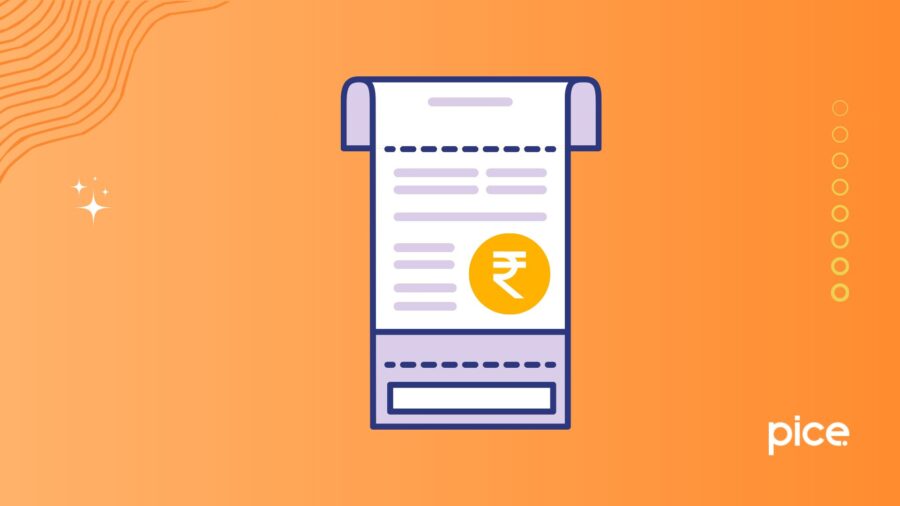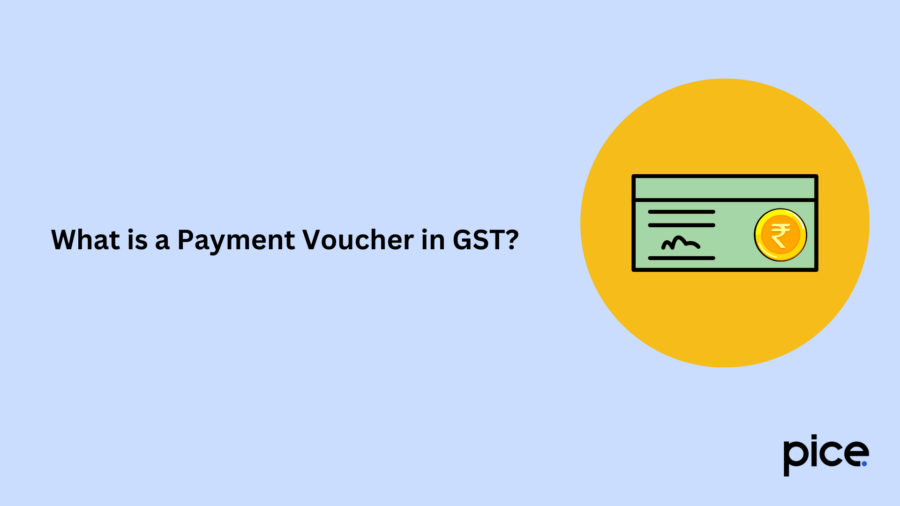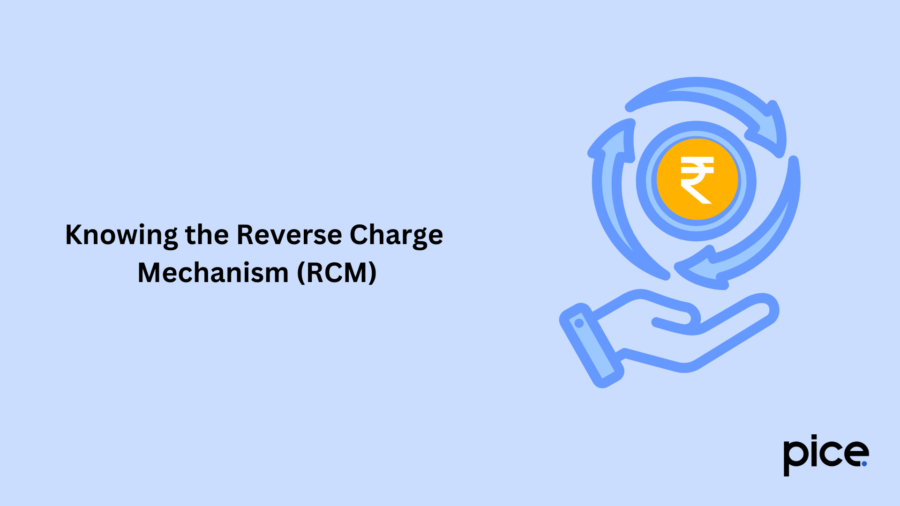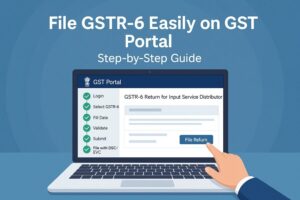When to Issue Payment Voucher Under GST?
- 21 Feb 25
- 7 mins

When to Issue Payment Voucher Under GST?
- What is a Payment Voucher in GST?
- Key Elements of Payment Voucher in GST
- Additional Considerations in Payment Voucher
- Knowing the Reverse Charge Mechanism (RCM)
- Payment Vouchers for Small Businesses
- Payment Vouchers for Exporters
- Importance of Payment Vouchers Under RCM
- When to Issue Payment Vouchers Under GST?
- Benefits of Payment Vouchers
- Conclusion
Key Takeaways
- Mandatory for RCM – Issued when buying from unregistered suppliers under Reverse Charge Mechanism.
- Ensures GST Compliance – Confirms tax payment and adherence to GST rules.
- Facilitates ITC Claims – Helps claim Input Tax Credit on GST paid under RCM.
- Supports Audits – Maintains clear tax records for audits and compliance.
- Prevents Penalties – Avoids fines and legal issues by ensuring proper documentation.
A GST payment voucher is an essential document that confirms payment by taxpayers to the Government. It indicates that the taxpayer adheres to its tax liability and obligation to contribute to government revenue.
However, all transactions under GST do not mandate the issuance of payment vouchers by a registered person. Taxpayers under the Reverse Charge Mechanism have to issue this voucher. Learn when to issue a payment voucher under GST here to make informed decisions.
What is a Payment Voucher in GST?

A payment voucher is a document confirming a registered taxpayer's payment to the Indian Government. It includes transaction details, the GSTIN (GST Identification Number) of the taxpayer, the amount of tax payable, the tax period and the payment purpose.
It serves as evidence or a complete record of tax payments by the business. It ensures transparency and compliance with tax regulations for the business resulting in seamless vendor management and vendor delight.
Key Elements of Payment Voucher in GST
You can find the following key elements in a payment voucher:
| Key Elements | Details |
| Voucher Number | A unique serial number to identify the specific voucher |
| Date of Issue | The issuance date of the voucher |
| Registered Taxpayer’s Details | Taxpayer’s name, GSTIN, and address of the issuer |
| Details of Unregistered Supplier | Name and address of the receiver; Notably GSTIN does not apply to unregistered suppliers. |
| Description of Goods or Services | Information describing the goods or services purchased |
| Transaction Value | The total value of purchase excluding GST |
| GST Rate | The applicable CGST (Central Goods and Services Tax) and SGST (State Goods and Services Tax) rates under the Reverse Charge Mechanism (RCM) |
| GST Amount | The GST amount is based on the applicable rate of tax |
| Total Invoice Amount | Total value including GST |
| Payment Mode | The payment method can be cash, bank transfer, cheque or any other method |
| Signature of Authorised Person | The signature of the authorised person should be present on behalf of the registered taxpayer |
Additional Considerations in Payment Voucher
Here are the factors to consider pertaining to filing of payment voucher:
● As a taxpayer, you should retain the payment voucher for at least 7 years from dates of payment.
● To avoid errors in payment vouchers, businesses need to use professional software or a pre-printed format of payment vouchers.
● The format for payment vouchers might vary between different Indian states.
● You can seek professional assistance to comply with the GST laws.
Knowing the Reverse Charge Mechanism (RCM)

Under the RCM process in GST, the responsibility to pay GST shifts from the supplier to the recipient of goods or services under specific circumstances. The following are the conditions when this might apply:
● An unregistered supplier of services or goods sells them to a registered taxpayer.
● The sale of commodities includes construction services, digital information or databases, retrieval services and defined work agreements.
Payment Vouchers for Small Businesses
Small businesses need to comply with GST requirements to avoid penalties and facilitate operational efficiency. Maintenance and records of payment vouchers can help track each transaction of tax payment ensuring transparency.
Payment vouchers help small businesses track their expenses, reconcile payments and verify them with financial statements. It streamlines fundamental practices for small businesses, promoting informed financial decision-making.
Payment Vouchers for Exporters
Exporters play an integral role in international commerce and trade. Payment vouchers are documented proof of IGST (Integrated Goods and Services Tax) payment on exported goods or services.
This voucher further helps exporters comply with tax regulations in tax audits. Moreover, it can be used to claim tax refunds or input taxes paid for goods or services utilised in export. Payment vouchers help exporters avail tax benefits while ensuring hassle-free operation in the international market.
Importance of Payment Vouchers Under RCM
Here is the importance of payment vouchers under RCM:
● Proof of Transaction: It is a legal document providing evidence of goods or services acquired from the unregistered supplier.
● Tax Liability Documentation: It confirms a registered taxpayer’s adherence to RCM rules under GST regulations followed by payment of GST on the transactions as per the rules on the unified portal.
● Input Tax Credit Claim: Based on the payment voucher, taxpayers can claim and optimise ITC on GST paid on the purchase of products, under the Reverse Charge basis, subject to conditions under tax regulations.
● Audit Trail: The payment voucher verifies transactions acting as a record for transparent audit, adhering to tax compliance standards.
When to Issue Payment Vouchers Under GST?
A registered taxpayer has to issue a payment voucher when the unregistered supplier fails to present a tax invoice under the Reverse Charge Mechanism (RCM). It applies to specific goods or services under RCM or unregistered suppliers.
If a business fails to issue a GST payment voucher (if applicable), it might be subject to penalties and adverse legal consequences. As a result, it is essential to issue a payment voucher wherever applicable for compliance with GST law. Taxpayers might consider the issue of payment vouchers electronically based on their convenience.
Benefits of Payment Vouchers

Here are the benefits of issuing payment vouchers:
- GST Compliance
Issuing a payment voucher indicates the taxpayer's commitment to meet tax obligations. Further, it confirms the payment of GST to the government in accordance with the GST regulations.
- Facilitates Reconciliation of Transactions
Payment vouchers help reconcile tax payments for filing payment vouchers and GST return filing. It ascertains accuracy in reported tax liability for businesses.
- Supports Audits and Assessments
Issuing payment vouchers facilitates seamless auditing processes and tax assessment. It confirms the taxpayer's compliance with tax laws.
- Record Keeping
Payment vouchers help in maintaining transparent GST records. You can refer to the voucher at any later date to confirm tax payment to the Indian Government.
- Internal Financial Management
Based on the GST payment patterns, ITC claims and other associated factors, you can plan your internal finances for the business. This boosts cash flow for your business, ensuring smooth operation.
- Accuracy for Compliance
Payment vouchers provide complete information, ensuring accuracy in tax payment, tax records and smooth compliance for businesses.
Conclusion
To elaborate on when to issue a payment voucher under GST, it is essential to mention that registered taxpayers under RCM have to issue it when there is a purchase. A payment voucher ensures compliance with GST regulations by confirming the taxpayer's payment.
As a taxpayer, you can claim ITC using patent vouchers to reduce your tax liability. Additionally, you need to use the payment vouchers to file GST returns under the Reverse Charge Mechanism. Ensure you issue these vouchers, as applicable to avoid penalty imposition and adverse legal implications.
💡If you want to streamline your payment and make GST payments via credit card, consider using the PICE App. Explore the PICE App today and take your business to new heights.
 By
By 

















